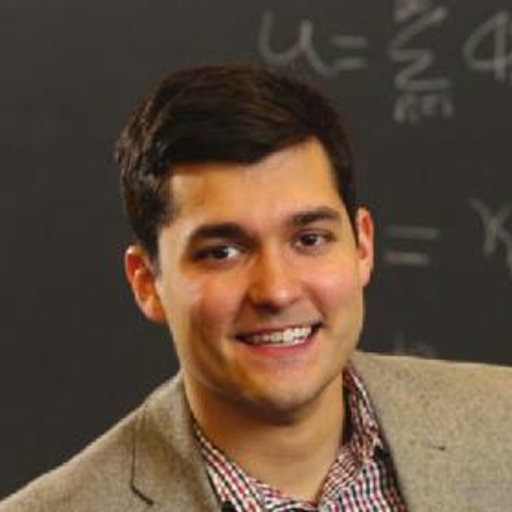Upcoming Events
School of CSE Seminar Series: Ryan F. Johnson

Speaker: Research Engineer Ryan F. Johnson, U.S. Naval Research Laboratory
Date and Time: November 17, 2:00-3:00 p.m.
Location: Coda 230
Host: School of CSE Assistant Professor Spencer Bryngelson
Title: Towards Simulations of Complex Physics in High-speed Propulsion Devices Using High-Order Methods
Abstract: High-speed combustion devices involve intricate and interrelated physical phenomena that present significant challenges for system design analyses. These systems center around compressible turbulent airflows, often at supersonic velocities, interacting with fuel at time scales comparable to the chemical reactions driving combustion. In practical systems, various factors, including heat transfer to the combustor walls and the fuel source's thermochemistry, can markedly influence this process, leading to operational envelopes highly sensitive to system design. These complexities are challenging to replicate and study experimentally, underscoring the importance of numerical simulations in comprehending high-speed combustion environments. However, employing these tools for design purposes remains problematic. First-principles simulations can be cost-prohibitive, while designing and calibrating reduced-order models can be intricate. Moreover, the required level of fidelity to model such intricate flows can vary from case to case, often not known until the investigation begins. Consequently, there is an ongoing imperative to gain a profound understanding of the fundamental physics in these complex combustion settings.
This presentation will spotlight the continuous efforts of the Naval Research Laboratory to advance numerical simulation methods for a more comprehensive grasp of the intricate physics within high-speed combustion devices. Particular emphasis will be placed on the utilization of the discontinuous Galerkin methodology in conjunction with realistic physical models for combustion processes. The discussion will also offer a brief historical perspective to provide context regarding the current state of the art, identify existing scientific challenges, and outline future research opportunities.
Bio: Dr. Ryan Johnson's joined NRL in 2015 as Karles' Fellow, dedicating himself to advancing the JENRE® Multiphysics Framework by embedding intricate combustion models. His responsibilities included overseeing the integration of gas-phase reactions with finite rate kinetics for modeling efforts involving solid, liquid, and gaseous fuels. Dr. Johnson's current focus centers on the practical application and validation of the JENRE® Multiphysics Framework in Navy-relevant combustors, including diverse applications such as solid fueled ramjets, scramjets, and rotating detonation engines. Before his tenure at NRL, Dr. Johnson earned his PhD at the University of Virginia under the guidance of Professor Harsha Chelliah. His doctoral research explored the coupling of computational fluid dynamics (CFD) with theoretical chemically reacting flow, covering a broad spectrum from carbon surface reactions to hypersonics. His academic journey was supported by several fellowships, including the National Defense Science and Engineering Graduate (NDSEG) Fellowship, the Farrah Fellowship, and the Paul Voight Teaching Fellowship.
Dr. Johnson is interested and devoted to introducing high-fidelity models and innovative numerical techniques as alternatives to conventional methods for simulating chemically reacting flows. His dedication to advancing the field has been acknowledged with two prestigious NRL ARPAD research publication awards.
Event Details
Media Contact
Host: Spencer Bryngelson (shb@gatech.edu)
EVENTS BY SCHOOL & CENTER
School of Computational Science and Engineering
School of Interactive Computing
School of Cybersecurity and Privacy
Algorithms and Randomness Center (ARC)
Center for 21st Century Universities (C21U)
Center for Deliberate Innovation (CDI)
Center for Experimental Research in Computer Systems (CERCS)
Center for Research into Novel Computing Hierarchies (CRNCH)
Constellations Center for Equity in Computing
Institute for People and Technology (IPAT)
Institute for Robotics and Intelligent Machines (IRIM)